-
Dr. Ismail Serageldin

Dr. Ismail Serageldin, Director, Library of Alexandria, also chairs the Boards of Directors for each of the BA's affiliated research institutes and museums. He serves as Chair and Member of a number of advisory committees for academic, research, scientific and international institutions. He has held many international positions including as Vice President of the World Bank (1993–2000).
Dr. Serageldin has received many awards including: First recipient of Grameen Foundation (USA) Award for a lifetime commitment to combating poverty, (1999); Officer of the Order of Arts and Letters awarded by the government of France (2003); Pablo Neruda Medal of Honor, awarded by the Government of Chile (2004); The Bajaj Award for promoting Ghandian values outside India (2006); Order of the Rising Sun – Gold and Silver Star awarded by the Emperor of Japan (2008); Champion of Youth Award by the World Youth Congress, Quebec (2008); Knight of the French Legion of Honor awarded by the President of France (2008); The Swaminathan Award for Environmental Protection (Chennai, India, 2010); Millennium Excellence Award for Lifetime Africa Achievement Prize, by the Excellence Awards Foundation, Ghana (2010); The Public Welfare Medal, by the National Academy of Sciences, Washington DC (2011); Commander of the Order of Arts & Letters awarded by the government of France (2011).
He has lectured widely all over the world including delivering the Mandela Lecture (Johannesberg, 2011), the Nexus Lecture (Netherlands, 2011), the Keynote Address to the First International Summit of the Book (Washington DC, 2012). He has published over 60 books and monographs and over 200 papers on a variety of topics including biotechnology, rural development, sustainability, and the value of science to society. He holds a Bachelor of Science degree in engineering from Cairo University and Master’s degree and a PhD from Harvard University and has received over 30 honorary doctorates. -
Dr. Helen Abadzi
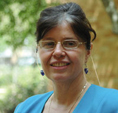
Dr. Helen Abadzi is a Greek psychologist who has spent 27 years as a Senior Education Specialist at the World Bank. She has drawn on cognitive psychology and neuroscience to improve the outcomes of educational investments.
She regularly monitors the emerging research in these fields and synthesizes relevant findings to explain and predict likely outcomes from various interventions.
The findings suggest that educational institutions should teach in accordance with the ways people process information so that students can learn more efficiently. Thanks to her work, early-grade reading fluency has become an international priority.
Dr. Abadzi is a polyglot who attained at least intermediate-level knowledge of 19 languages, including Arabic. She has used her linguistic ability to focus particularly on improving outcomes for marginalized students. She is the author of many publications, including the widely cited Efficient Learning for the Poor. She continues her academic activities at the University of Texas at Arlington. She is interested in studying the building blocks that lead to automatic execution of complex skills, such as math, reading and rapid comprehension of Arabic.
Presenters
-
Dr. Abed El Latif Kidai
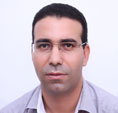
Born in 1971 in Rabat, Dr. Kidai holds a Master's Degree in Educational Psychology from the Faculty of Education, and a Doctorate in Sociology from the Faculty of Arts and Humanities, Fès. He joined the Ministry of Youth in 1993 where he held various positions locally and nationally, the last was as Head of Training Unit at the ministry level.
He was recruited in 2007 as Assistant Professor of Sociology at the Faculty of Arts and Humanities, El Jadida, and in 2009, he moved to the Faculty of Education.
Dr. Kidai is a member of the University Council, Pedagogical and Evaluation committees, and the research team on "Youth: education and social change", as well as he is the coordinator of the Master Programme on "The Re-education of the Delinquent". He has carried out numerous expertise and consultancy activities on the issues of childhood and youth, Special Needs Education, and published a number of research articles and studies. Dr. Kidai works as an expert on childhood for ISESCO, on youth for the Ministry of Youth and Sports, and as consultant for the educational TV Channel 4. -
Dr. Maguy Chataoui
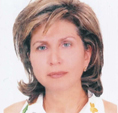
Dr. Chataoui has a Ph.D. in didactics of the Arabic language from Sorbonne University, France, and is a professor at the Lebanese University and in private institutions in Lebanon. She is a research professor in didactics of the Arabic language and in initial and in-service teacher training programs, as well as in the field of professionalization of the teaching.
She is also a consultant in the D-RASATI nation-wide project of pre-university teachers training cycles in Lebanon. Dr. Chataoui is the office Coordinator of practical training at the Faculty of pedagogy – Lebanese University and is a former general coordinator of the professional master's program at the Faculty of pedagogy - Lebanese University. -
Mrs. Josette Haddad
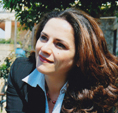
Josette Haddad, who was born in 1971, flees a war-torn Lebanon with her parents in 1973. The family settles in France, where Josette grew up and finished her high-school education in Lycée Marie-Curie, in the French city of Sceaux. In 1991, she moved back to Lebanon for good, and enrolled in the Faculty of Economics at the Saint-Joseph University, from which she graduated, in 1995, as head of the honor list.
Josette directly took on teaching in the Faculty, until 2002, when she decided to explore teaching opportunities in a Lebanese school. Throughout her teaching career at the Saint-Joseph High School, Aintoura, from 2002 to 2012, Josette gave economics, sociology and philosophy classes to grades 11 and 12, and in addition to her teaching duties, she was asked to manage the Saint- Joseph Elementary school during the academic year of 2011-2012. The following year, Josette took on a teaching mission in the high-school division of the Lycée Français Abdel Kader, in Beirut, as part of exploring "laicism" in the work environment.
Her dual French and Lebanese background deeply influenced Josette who shows particular interest in languages and the application of linguistic codeswitching as a didactic teaching tool, evidenced throughout her readings and research. Josette took the lead of her profession and reinitiated her education path in 2008, at the Faculty of Education of the Saint-Joseph University, where she is graduating soon with a double research and professional master's degree in school management.
Faithful to her vocational teaching profession and strongly believing in the educability and accessibility of more people to culture, Josette is nowadays in charge of the management of her brainchild, the MJC (Mutuelle Jeunesse Culture) youth cultural and psycho-educational center, located in Zouk Mosbeh. -
Dr. Yvette El Gharib
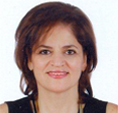
Yvette El Gharib Mourad is a Faculty member and Postgraduate Thesis Coordinator at the Faculty of Education (Saint Joseph University). She's a researcher in School Administration, and particulary in communication strategies. She also serves as Head of elementary school at Zahrat El- Ihsan since 1985.
She's a specialist in childhood literature, and thus wrote children stories and contributed to the development of French school textbooks. Dr. Yvette animated numerous workshops and training sessions for school professionals, and participated as an expert to several school projects. -
Dr. Suzanne Abou Rjeily

Suzanne Abdul-Reda Abou Rjeily is an Associated Professor and Researcher in School Sociology, with a focus on school climate and educational change. As a consultant, she evaluated several educational projects implemented by Lebanese and international organizations.
She served as a lead technical expert for School Improvement Program with D-Rasati project. She contributed to the Citizenship Education project at the Carnegie Middle East Center. Dr. Abourjeili coordinated a book on Higher Education and Labor Market in Lebanon, and of numerous articles related to educational reform in Lebanon, training teachers' policies and action-research impact at school-level. -
Dr. Jari Lavonen

Jari Lavonen, MSc and PhD in Science Education (University of Helsinki, 1996), has been a Professor of Physics and Chemistry Education at the University of Helsinki since 2003. He is also the head of the department. He has been a president of the Finnish Association for Research on Teaching of Mathematics and Science (2002–2007) and a director of the Finnish Graduate School for Mathematics, Physics and Chemistry Education (2007–2011).
He has been researching science and technology education and teacher education for the last 29 years. He has published 149 refereed scientific papers for journals and books, 140 nonrefereed papers and 160 books for either science teacher education or science education. His main research interests are science and technology teaching and learning, curriculum development, teacher education and the use of ICT in education. He has directed two research projects financed by the Finnish Technological Science Foundation, three financed by the Ministry of Education and seven financed by the European Union, for a funding total of €1.4 million during the last 10 years. -
Dr. Joseph Jabbra
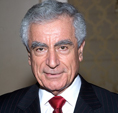
Dr. Joseph G. Jabbra, who was born in Lebanon, received his Law degree from the Université St. Joseph and Ph.D. in Political Science from the Catholic University of America, Washington, DC. He assumed the presidency of the Lebanese American University on August 1, 2004.
Previous to that, he served as Academic Vice President at Loyola Marymount University from 1990 to 2004. He had earlier served as Vice President, Academic and Research, at St. Mary's University in Halifax, Canada, from 1980 to 1990. During his tenure at LMU and SMU, Dr. Jabbra gained profound experience in academic administration. He served on, and chaired, over one hundred academic committees and boards, ranging from academic senates to boards of trustees.
In both Canada and the United States, Dr. jabbra was very well versed in academic accreditation. In Canada, he played a major role in the Maritime Provinces Higher Education Commission, which accredits university and college programs in the three Canadian Maritime Provinces, and in the United States, he was very active in the Western Association of Schools and Colleges, which is the leading accrediting commission. He always participated vigorously in the revisions of accreditation standards and served on accreditation visits for many institutions. He was also active in the accreditation of American law schools for the American Bar Association.
Dr. jabbra was moreover fully engaged in preparing the strategic planning and fund raising campaigns at both St. Mary's University, in Canada, and Loyola Marymount University, in the United States. He also served on several hospital boards in Canada and the United States.
Dr. jabbra has a passion for teaching and research. During his tenure as Academic Administrator, he continued to teach and do significant research in the areas of political science, international law, international relations, public administration, the environment, globalization, law, and the Middle East. The courses he taught include: Introduction to Political Science, Scope and Methods of Political Science, International Law, Canadian and American Legal Systems, Public Administration, Government and Politics in the Middle East, the Middle East in International Affairs, and Islam.
Dr. jabbra is the author, co-author, and co-editor of 12 books. The last book, "Public Administration in Transition" was published last year in London, England. To his credit, he also has thirty three articles and chapters published in books and scholarly journals, over twenty six book reviews in both English and French, scores of scholarly papers and keynote addresses given at learned societies' meetings and professional gatherings.
During the AAICU meeting which was held from April 29 – May 1, 2011, in Beirut, Dr. Joseph jabbra was elected President of the Association of American International Colleges and Universities (AAICU). Dr. jabbra belongs to fifteen professional societies. -
Dr. Ramzi Salamé

Dr. Ramzi Salamé is currently in charge of quality assurance operations at St. Joseph University in Beirut. He worked for UNESCO as senior specialist in higher education and training of educators, regional advisor for the reform of educational systems in the Arab states, and acting director of the Regional Bureau for Education in Beirut.
He undertook consultancy missions to most of the Arab states, and organized the greater part of the ministerial conferences called for by UNESCO in the Arab region between 1994 and 2008. Dr. Salamé is a graduate of the Lebanese University and the University of Montreal in Canada where he received his doctorate in the educational psychology. He held various university positions in Lebanon and Canada, ultimately attaining professorial rank. He has numerous publications on various issues of higher and general education. -
Dr. Theodore Hanf
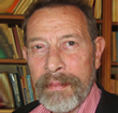
Theodor Hanf studied political science, sociology and education in Bonn, Paris and Freiburg. Dr. of Philosophy, Freiburg 1966. He has been teaching at Stanford, Lovanium (Kinshasa), Regensburg, Ann Arbor, Beirut, Würzburg and Vancouver. Field research in Africa (8 years), Asia (6 years) and the Middle East (8 years).
His research foci: Conflict and conflict regulation in divided countries, education and politics, religion and politics. Books i.a. on Lebanon, Indonesia, Pakistan, Georgia, Kosovo, Rwanda, Congo, South Africa.
He is a Research Professor of sociology, German Institute for International Educational Research, Frankfurt; Honorary Professor of political science, Freiburg University and a Visiting Professor of Political Studies, AUB (fall semesters). -
Ms. Fatima Awada

Fatima Awada is the Assessment Officer in the Dean's Office of the School of Arts and Sciences at the Lebanese American University. She joined LAU in July 2012 after pursuing a teaching career at the Deutsche Schule Beirut for three years. She graduated from AUB with a B.A. in Education in 2009 with an emphasis in math and sciences.
She is also a graduate student at LAU majoring in education with an emphasis in educational management and leadership. She is currently working on her thesis where the chosen topic is "Assessment and Evaluation of University Students' Soft Skills: An Active Learning Alternative". She is also currently a member of a team working on a project that LAU is consulting which targets the assessment of the social work program at Princess Nora University in Riyadh. -
Samar Al-Kassar
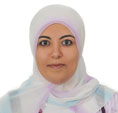
Samar Al-Kassar was born and raised in Beirut, Lebanon. She got her BA in English Language and Literature from Beirut Arab University. She graduated from the Lebanese University with a Master's in Educational Leadership and Management. She is currently pursuing her PhD in the Lebanese University Doctoral School.
She has been an English teacher and instructor for elementary, intermediate, and secondary classes since 2000. She teaches at private and public schools in Beirut. She dedicated her whole life to teaching, and most of her spare time goes to reading all kinds of books and novels. She is interested in proving that we are perfectly capable of taking our studies and experiences at university and applying them to real life. According to her, self-learning is extremely important in life, especially in the profession of teaching. One of the most interesting things for her has been meeting people in all the countries she has visited. -
Ms. Sahar Chaer
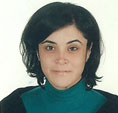
Ms. Sahar Chaer was born in Beirut, Lebanon. She got her Lebanese and French Baccalaureates with honors. She then joined the School of Translation in Beirut at Saint Joseph University where she got her Bachelor of Arts in Translation and Languages. Later, she headed to the Lebanese American University where she finished her Teaching Diploma in Teaching English as Second Language for Elementary Classes.
While working as a full time teacher and English coordinator at Ali Bin Abi Taleb College - Makassed, she pursued her Master's degree in Educational Administration at the Lebanese University's Faculty of Education. Sahar is currently a doctoral student majoring in Educational administration at the Lebanese University's Doctoral School of Literature, Humanities, and Social Sciences. In addition to teaching, Sahar is a trainer for graduate students in Educational Supervision at the Lebanese University's Faculty of Education and a sworn translator at the Lebanese courts of law. -
Ms. Mira Alameddine

Mira Alameddine has an MA in Education and an MA in Philosophy. She is specialized in teaching ESP, particularly Business English and Technical Writing for Engineers, and Moral reasoning. Her career has led her into the field of research on teaching business English for Arab learners and the effects of teaching ethics on business and engineering students.
She has published several articles on teaching business English and Business Ethics. Ms. Alameddine is a part-time instructor at Rafik Hariri University (RHU) and Lebanese American University (LAU). Currently, she is pursuing her PhD in Education at the Doctorate School of Literature, humanities and Social Sciences at the Lebanese University. -
Dr. Reda Hachem
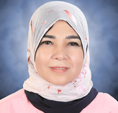
Dr. Reda Mohamed Hassan Hashem is a professor at the Department of Foundations of Education, College of Girls at Ain Shams University. She holds a Bachelor of Arts in educational history, a Diploma in Education and Psychology, and MA and Ph.D. in education from the College of Girls at Ain Shams University. Dr. Reda attended several workshops and conferences, and even carried out a number of workshops.
She has experience in university teaching and administrative work. She held the following positions at the College of Education for Girls in Domt EL- Jandal, El-Jouf University, those are: Secretary for Student Affairs, Head of the Department of Education and Psychology, Chair of the Disciplinary Committee, Head of admission and registration, and coordinator of the College of Education for Girls. Dr. Reda has a number of publications. -
Dr. Adnan El Amine

Adnan El Amine, PhD, graduated from Lebanese University in 1971 and obtained his doctorate in sociology of education from Sorbonne University-Paris in 1977 and the doctorate (d'Etat, Es Letter) from Sorbonne in 1991. He was Full Professor at Lebanese University until 2008. He worked as consultant of Higher education at UNESCO office in Beirut between 2008 and 2011.
He is the coordinator of the LAES project on the quality of Higher education in the Arab countries, and the coordinator of the conference (2011-2013).
Dr. El Amine initiated the idea of the Lebanese Association of Educational Studies (LAES), he was among its founders and was its president for nine tears. He also initiated the idea of the Arab Educational Information Network (Shamaa) (2006), and was among its founders as an Arab NGO (2010). Dr. El Amine is the author of 19 books and more than 30 papers published in Lebanese, Arab and international journals. -
Dr. Reima Al-Jarf
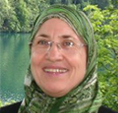
Prof. Reima Al-Jarf has taught English and translation at King Saud University for 26 years. She is an author of 7 books, 150 book chapters, encyclopedia and journals articles in peer-reviewed international and national journals and conference proceedings and more than 200 academic articles. She has given 270 conference presentations and 40 workshops in 60 countries.
Some of her publications, conference presentations and training workshops focus on electronic databases, repositories, electronic searching, electronic publishing, e-journals, online union catalogs and others. She is a member of 22 professional organizations and is a reviewer for numerous peer-reviewed international journals including some ISI journals. She has won 3 Excellence in Teaching Awards and the Best Faculty Website Award at King Saud University and an award from the King Abdullah Initiative for enriching the Arabic content on the Internet. -
Mrs. Rita Maalouf

Mrs. Rita Maalouf, the executive director of Shamaa, graduated with a master's degree in information sciences from the École de bibliothéconomie et des sciences de l'information (EBSI) of Montreal University, Canada, with specialization in the management of electronic information, after obtaining a B.A. in Documentation from the Lebanese University in Beirut.
She is currently a college instructor at the Lebanese University, Faculty of Information and Documentation, where she teaches courses on general and specialized information sources and resources. Mrs. Maalouf has held the position of Shamaa's executive director since its inception in 2007. Prior to that, she held, for three years, a leading position within the European Commission funded project on the Rehabilitation of the Lebanese National Library. Mrs. Maalouf is member of the Lebanese Library Association (LLA), the Corporation des bibliothécaires professionnels du Québec (CBPQ), the Association internationale francophone des bibliothécaires et documentalistes (AIFBD). She has presented papers at various regional and international professional conferences. -
Mrs. Randa Al-Chidiac
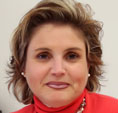
Randa Al-Chidiac is currently the Executive Director of the Library at the Holy Spirit University of Kaslik (USEK), Lebanon. She previously held the position of E-Resources Librarian at the University of Balamand, Lebanon, from September 2000 to October 2012. She is currently the President of the Lebanese Library Association.
She also resides on the Standing Committee on the Management of Library Associations Section in the International Federation of Library Associations and Institutions (IFLA). She has attended numerous conferences where she has presented papers and has hosted webinar sessions and workshops. -
Ms. Nadia Hashem Hasan
Mrs. Nadia Hassan graduated, with distinction, from the Institute of Educational Studies and Research, Cairo University with a master's degree in Education. Her master thesis entitled "Egyptian Society's Vision of Education: Sociology Study over generations: sociological Analysis for three Egyptian Generation's vision of education" adopted the ethnographic methodology in field whereby the researcher experienced the life of Egyptian families in slums, cities and countryside to monitor their reality, prospective and experiences with regard to education.
Mrs. Hassan is currently pursuing her Doctoral studies in education on the topic of "Educating digital generation in disadvantaged areas: a sociological study for the features social exclusion in Egypt." Mrs. Hassan also presented a paper entitled "Youth and their Vision of Egyptian Education Future" in the annual Conference 2013 of the National Canter of Social and Criminal Researches; the paper discussed the youth characteristics and their prospective to Education and its social and economic benefits as well as their vision of Egyptian Education Future. -
Mr. Ali Abdulla Abu Nawas
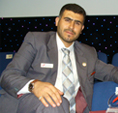
After obtaining his B.A degree in Math, he started his work at the Ministry of Education in Jordan. In 2002, he finished his M.A degree with emphasis in "measurement and evaluation" from the faculty of education at Mu'tah university. In 2009, he joined the Ph.d program in the University of Jordan also majoring in "measurement and evaluation".
He has been working on his Ph.d thesis since 2011. He has also published several peer-refereed research papers and books in national scientific journals, in the areas of math and statistical education. He has also participated in many seminars, scientific meetings and conferences at both the local and national levels. Ali Abunawas has received many awards including Hamdan Bin Rashed's Award in 2010. -
Mr. Samer Ghamroun

After completing law and political science degrees in Lebanon, Samer Ghamroun achieved his Master degree in political sociology at Sciences Po Paris and started a PhD program at the "Institut des Sciences sociales du Politique" (ISP) at the Ecolenormalesupérieure in Cachan, near Paris.
His researches in the field of legal sociology evolve around issues such as juvenile courts in Lebanon and their relation to sharia courts, judicial policies in Lebanon and judges' mobilizations in Egypt and Tunisia and other Arab countries. He is also a member of an international research team in legal anthropology studying Islamic law and property issues in different Muslim contexts. He has taught legal and political sociology in several universities in Paris, and is a founding member of the Legal Agenda center in Beirut where he regularly animates discussions in Law and Society in Arab societies. He has also published several chapters in collective books in French and Arabic. -
Ms. Lara Badre

Lara BADRE is a PhD candidate in demography at the University of Paris Descartes (Paris V) in France, also affiliated to the lab Centre Population et Development (CEPED), in Paris, France. Miss BADRE has a master degree in social sciences from the Université Catholique de l'Ouest (UCO) in France.
She has 13 years of professional experience in statistics and currently working at the Central Administration of Statistics (CAS) (national statistical office of Lebanon) where she is the national coordinator for migration statistics within the EU funded project on statistical cooperation MEDSTAT III project.




